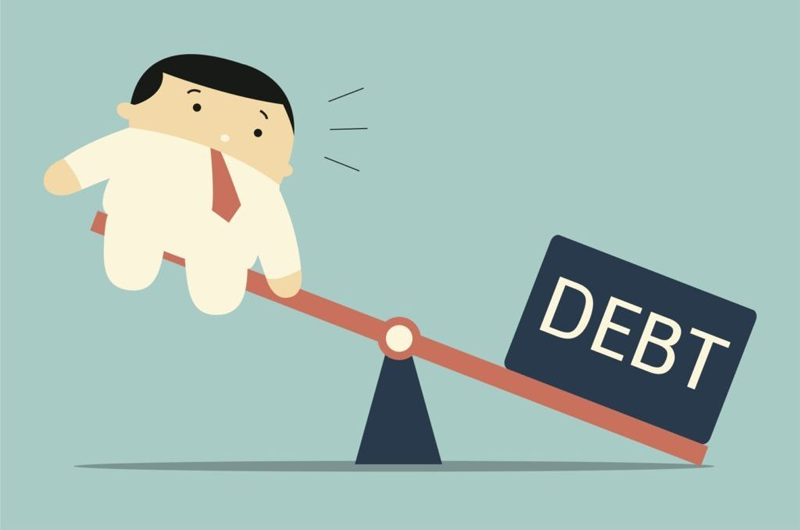Asteria Lending Inc. Unit 306 3/F 6762 National Life Insurance Bldg. San Lorenzo, Ayala Ave. Makati City
We’re Open: Mondays – Fridays
Office Hours:
9:00 am – 7:00 pm
Email:
[email protected]

People use personal loans in the Philippines for all kinds of reasons and providing you can make the repayments; you can use this kind of finance for practically any purpose. There a few common themes that have emerged over the years, so we thought we’d give you the lowdown on what these are. Here is Asteria’s top five reasons for taking out a personal loan in the Philippines:
This is arguably one of the most sensible ways to use a personal loan as it can help to improve your credit score and ultimately, have a positive effect on your finances. Debt consolidation loans are frequently approved by lenders across the Philippines and though rates can vary, depending on factors such as income and age, customers can expect to monthly payments to be a little more manageable when compared to high interest credit cards. Using personal loans to pay off credit card debt is a good option when you have a stable income and are in a position to pay for your everyday expenses without having to borrow more. As you are effectively paying off all of your debts at once, monthly payments can be quite substantial, however, this is often easier to manage than multiple, smaller payments that are taken at different times throughout the month. Before agreeing to a debt consolidation loan, always check that you are getting the best value for money. You may be able to secure a lower interest credit card or take advantage of balance transfer offers that provide you with a better deal.
In the Philippines, medical treatment can be expensive, especially if you need a complex procedure or a very specific medication. Global economic instability means that the cost of medicines can vary quite significantly and if you rely on meds to stay healthy, a personal loan can help you to ensure you don’t run out. When applying for a personal loan to use for medical reasons, it’s important to ensure you’re borrowing the right amount. There’s no need to take out more than you need, and you always need to be made sure you can afford the repayments. If you have health insurance, you may be able to use this to help cover the cost of your repayments, though it can depend on the type of policy you have. Even if your insurers are willing to cover a portion of the repayments, this can still be useful as it means you won’t stand to lose quite as much. Unlike loans for holidays or special treats, this type of personal loan isn’t frivolous and should be considered a reasonable way to use finance.
Transport in the Philippines isn’t quite as advanced as some other parts of the world. Though many cities do have reliable bus and train networks, most residents who need to travel rely on the use of a car. In rural areas, many places are not accessible by public transport, which means that having your own transport is essential. Using personal loans to pay for the initial cost of a car, van or motorbike is commonplace and most lenders will have no problem in approving applications that are going to be used to pay for finance or the cost of a vehicle outright. If you’re buying second hand, the need for repairs and maintenance is inevitable, so it may also be worth using a personal loan to pay for mechanics bills and the cost of spare parts. If you can be disciplined enough, it can be worth borrowing a little more from your lender initially, then keeping a portion of the loan in a savings or current account. This means that when breakdowns and other unexpected problems happen, you can ensure that your car is still roadworthy. Always be cautious and shop around before you decide to submit an application officially as rates for vehicle loans can vary dramatically.
From a new set of windows to a full extension, home improvements can change the quality of your day to day life for the better. Personal loans in the Philippines are frequently issued to homeowners who need to do some work on their properties. Relying on savings and your existing income to pay for home improvements can be impractical. It often makes more sense to take out a lump sum so you can pay for any work that needs to be done in advance. Taking this approach means that your home is likely to look like a building site for months on end as you can avoid any gaps in work due to lack of funds. The amount you need will depend on the type of work you are having done. Many families focus on one area of the house at a time, as this can minimise disruption. A new kitchen can require a loan of several thousand whereas a new sofa or TV will generally only require a few hundred. Providers will generally accept home improvement as a valid reason to apply for a loan and providing you have an income, it’s unlikely you will be refused unless you have a poor credit score or other previous financial issues.
It may seem a little frivolous, but holidays really do matter. After working hard all year round, it’s important to recharge the batteries and take some well-deserved you time. Family holidays in the Philippines can soon be expensive. The cost of meals out, souvenirs, activities and accommodation soon mount up and a regular salary may not be enough to cover this. Applying for a holiday loan in the Philippines is as straightforward as any other type of application and providing the amount you are asking to borrow is not unreasonably high, the vast majority of providers are likely to approve you.